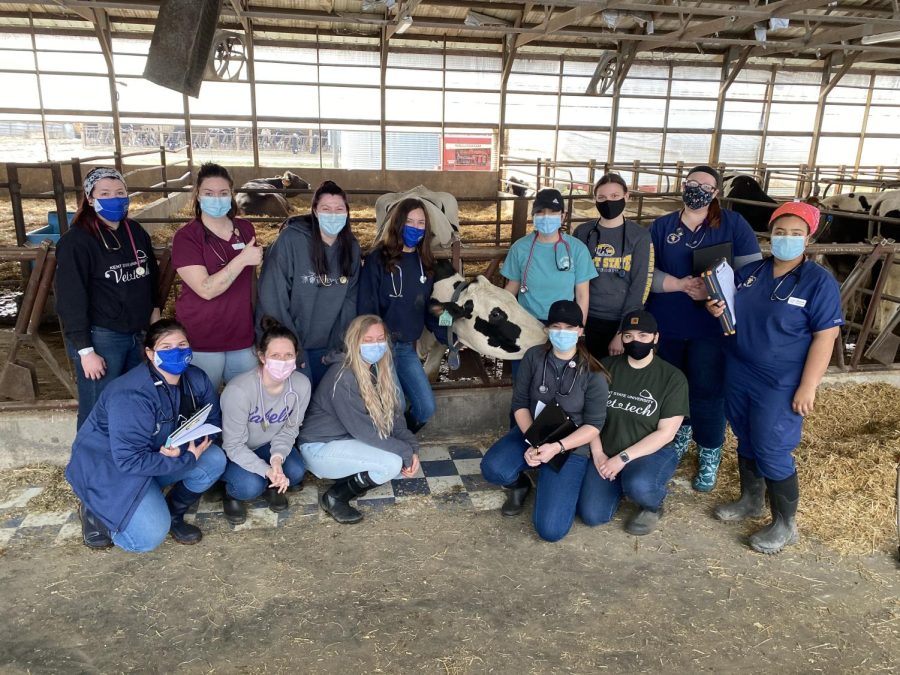Veterinary Technology students earn highest passing rate in Ohio for second year in a row
March 15, 2021
For the second year in a row, Veterinary Technology students at Kent State have achieved Ohio’s highest average passing rate on the national board exam along with earning a 100 percent passing rate on the first attempt.
Kent State at Tuscarawas and Trumbull both offer the Veterinary Technology program. Students are trained with live animals and gain tons of hands-on experience, said Kim Huston, program director of Veterinary Technology at Kent State Tuscarawas.
“I hear time and time again that students have looked into going to other schools, locally, and they just don’t seem to have the hands-on experience our program does,” she said.
Veterinary Technology students learn to prepare patients for surgery, intubate with breathing tubes, administer anesthesia, monitor surgeries and countless other skills. Students also perform skin sutures, such as stitches, and assist with recovery.
As an example of the skills these students learned, one vet tech student shared how she used her instincts during a surgery class to tame a scared cat on the operation table.
Just before sedation, Taylor Ball, a veterinary technology student and president of the Vet Tech Club, said the cat they were going to be operating on became erratic and started thrashing around. With the help of another student she threw a towel on the animal and was able to calm it down enough to sedate it before surgery.
“Surgery class is as real as it gets because we have real patients that undergo anesthesia,” Ball said. “There are many risks working on live patients. You just work with what you have and accept the risks.”
Although the students learn a lot from their surgery class, Ball said they study difficult subjects in their other classes as well.
“We learn a lot of information in a little bit of time. We have to earn at least 73 percent in every class and on every exam in order to continue with the program. It is very intensive,” Ball said. “But once you get past the first two semesters and you get into the groove of things, it gets easier to manage.”
Students in the program learn to care for a spectrum of animals such as dogs, cats, horses, goats and even birds and reptiles.
The program at Trumbull has a relationship with the Animal Welfare League, a shelter that protects neglected, injured and abused animals of Trumbull County. Students get to work and care for these animals to earn experience.
The relationship with the Welfare League is one of the program’s strengths, said Daniel Palmer, dean and chief administrative officer of Kent State Trumbull.
“It’s a very new facility with state-of-the-art equipment,” he said. “It’s a great ability for the students to get a lot of hands-on training. It’s been a really good relationship.”
While the Animal Welfare League has helped the students gain hands-on experience over the years, some students found a way to give back to the shelter.
Members of the Vet Tech Club raised close to $1,000 this year to support the Welfare League by hosting a clothing fundraiser. The club participates in virtual meetings and works together to raise money for local organizations.
Along with raising money, the club is used as a support group for students to connect and help each other learn. The club is one of the reasons students have succeeded for multiple years, Ball said.
Student success can also be attributed to the hard work and dedication put in by faculty and staff, said Melissa Best, program director of Veterinary Technology at Kent State Trumbull.
“We get really involved which helps us to determine the students’ weaknesses and evaluate them better and spend more time with them on areas,” Best said. “When I’m teaching a skill or we have an animal out and then they get like that ‘a-ha’ moment where they understand the concepts, that’s the best part.”
These students can go into the field of their choice once obtaining their license.
“They can choose what species of animal they want to work on in their career,” Best said. “There are so many opportunities for them.”
Olivia Futo covers regional campuses. Contact her at [email protected].












